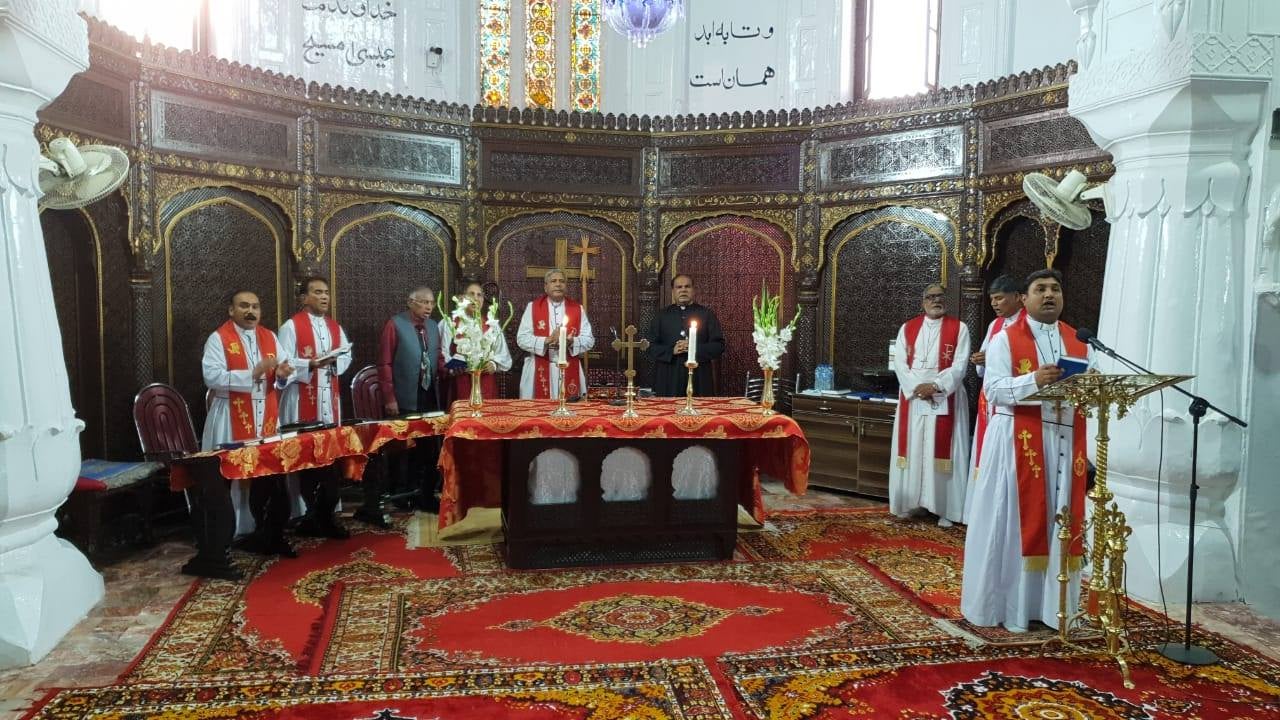National Commission for Minorities in Pakistan: Problems of Inclusion, Jurisdiction, Independence and Legitimacy
Imran Ahmed
31 October 2020Summary
The impetus to establish the National Commission for Minorities in Pakistan arose from a Supreme Court order to redress grave concerns of and injustices against religious minorities in the country. While the Supreme Court put forward a decisive plan of action to create a strong and independent statutory body to monitor, realise and safeguard the rights of minorities, the political will to create such a body has been almost entirely absent. The body which emerged in May 2020 is neither inclusive nor autonomous and it is not likely to be able to effect substantive change.
The impetus to create the National Commission for Minorities in Pakistan arose out of the traumatic suicide bombings which took place at the All Saints Church in Peshawar on 22 September 2013. The blasts killed 127 worshippers, wounded some 250 others and are recorded to be the worst and most grievous attacks on Pakistan’s Christian minority in the country’s history.
In the aftermath of the attack, the Supreme Court of Pakistan received a number of complaints related both to the church bombings in Peshawar and other grievances faced by religious minorities across the country. The Supreme Court later initiated suo moto proceedings under Article 184(3) of the Constitution on a letter received from the Justice Helpline, a non-governmental organisation, regarding the Peshawar church attacks and reports concerning forced conversions to Islam of the indigenous Kalash tribe and Ismailies in Chitral. Article 184(3) allows the Supreme Court the power to consider a question of public importance with reference to the enforcement of any of the fundamental rights in the Constitution and make an order to ensure that such rights are upheld.
A number of issues faced by religious minorities in Pakistan were brought before the Supreme Court during the proceedings and it lamented the proliferation of sectarian violence including targetted killings and mob violence towards Islamic sects and non-Muslim communities. The judgement in the case handed down in June 2014 noted that while numerous Articles in the Constitution accorded the lives and religions of minorities inviolable, institutional protections, however, were required. Chief Justice Tassaduq Hussain Jillani wrote: “It is because of absence of effective State action that despite elaborate textual guarantees for minorities’ rights, empirical realities reflect a mixed bag, rather a dismal state of affairs”.
The Supreme Court, therefore, directed the government with the task of constituting a National Council for minorities’ rights to delve deeper into the problem. The function of this Council would be to monitor the practical realisation of the rights and safeguards provided to minorities under the Constitution and law. This Council, the Supreme Court noted, should also be mandated to frame policy recommendations for safeguarding and protecting minorities’ rights by the Provincial and Federal Governments.
While the judgement was lauded for its initiative, the political will to implement the practical steps the Supreme Court outlined towards building a more cohesive and inclusive society in Pakistan has been by and large absent. Three Bills have been introduced before parliament to build momentum in creating an independent, statutory Commission but to no avail. The government presented strong objections to The Commission for Minorities Bill, 2015, moved by Beelam Hasnain; The Commission for Minorities Bill, 2015, moved by Lal Chand Malhi; and The Commission for Minorities’ Bill, 2016, moved by Sanjay Perwani. Instead, the government argued that the Ministry of Religious Affairs would merge all three private Bills together and promulgate a combined and comprehensive Bill. However, nothing materialised.
It was not until 2018 when the Human Rights Commission of Pakistan, the Centre for Social Justice and the Cecil and Iris Chaudhry Foundation filed a public interest litigation before the Supreme Court to have the 2014 judgement implemented. The National Commission for Minorities which was established on 5 May 2020 was done not through an act of legislation or by parliament. It was instead set up by the federal cabinet. And, consequently, it is a government body rather than an independent, statutory one. Moreover, the 18th Amendment of 2010 mandates that issues pertaining to religious minorities are a provincial matter meaning that the Commission has little jurisdiction beyond the capital territory, let alone the country. The autonomy of the Commission is also compromised since it operates under the Ministry of Religious Affairs (which is headed by a Muslim). The Commission’s composition also includes Muslims which could mean that issues which the religious right in Pakistan refuse to negotiate on, will likely continue to be censored. And finally, the federal government withdrew its decision to include Ahmadis in the Commission which puts to question the body’s overall legitimacy as a representative institution of minority interests in the country. It also signals further that Ahmadis are neither Muslims nor a minority.
For religious minorities in Pakistan, the creation of the current National Commission for Minorities means little and changes little. It is neither a genuine effort to redress wrongs nor a means to usher a better future. The results, in other words, have been disappointing.
. . . . .
Dr Imran Ahmed is an Honorary Associate at the University of New England, New South Wales, Australia, and a consultant with the Institute of South Asian Studies (ISAS), an autonomous research institute at the National University of Singapore (NUS). He can be contacted at iahmed5@une.edu.au. The author bears full responsibility for the facts cited and opinions expressed in this paper.
Photo credit: Facebook/All Saints Church Peshawar
-
 More From :
More From :
-
 Tags :
Tags :
-
 Download PDF
Download PDF



